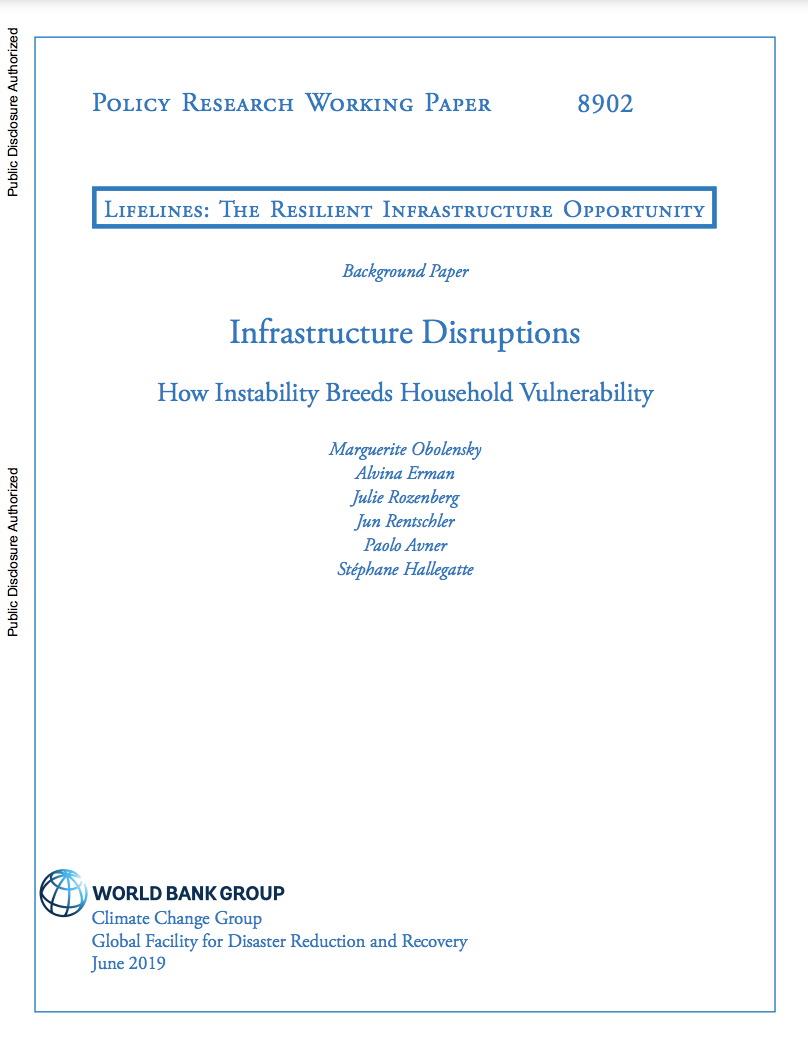This review examines the literature on the welfare impacts of infrastructure disruptions. There is widespread evidence that households suffer from the consequences of a lack of infrastructure reliability, and that being connected to the grid is not sufficient to close the infrastructure gap. Disruptions and irregular service have adverse effects on household welfare, due to missed work and education opportunities, and negative impact on health. Calibrating costs of unreliable infrastructure on existing willingness to pay assessments, we estimate the welfare losses associated with blackouts and water outages. Overall, between 0.1 and 0.2 percent of GDP would be lost each year because of unreliable infrastructure -- electricity, water and transport.
Infrastructure Disruptions
How Instability Breeds Household Vulnerability
June 1, 2019

